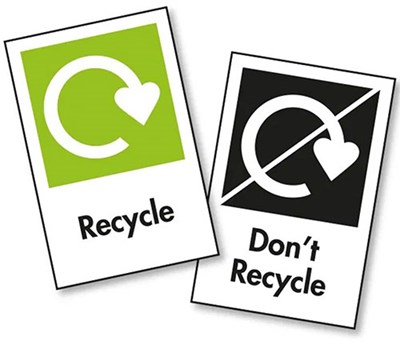#MakeItEasy is a public campaign to secure a single recycle label design for the mandatory labelling envisioned in the Environment Bill.
The Environment Bill is set to make recycling labelling on packaging mandatory, but does not explicitly back a single, unified design of labelling. It is feared that this could lead to multiple forms of labelling, resulting in confusion and reinforced barriers to recycling.
Whilst OPRL support mandatory labelling and the ability of obligated businesses to join the labelling scheme of their choice, they also passionately believe that a single label design is essential to provide consumers with absolute clarity on what they can recycle and what they cannot.
Lord Teverson is re-introducing an amendment (Amendment 35) to the Environment Bill which would address this deficiency in the Government's EPR proposals. To support the amendment OPRL has launched the #MakeItEasy campaign and are calling on the public to sign the petition to secure a single recycling label based on the OPRL design, perfected over 12 years of use on millions of pieces of packaging.
Research undertaken by OPRL has consistently shown that the current multiplicity of symbols purporting to communicate recyclability are poorly understood by citizens, which adds to their confusion resulting in either inaction or incorrect action. For example, 3 in 5 people don’t recycle something because they don’t understand whether or not it can be recycled, the biggest single barrier to recycling.
OPRL designs have three times the level of understanding of polymer recycling symbols and six times more understanding than the Mobius Loop or Green Dot. They believe that the OPRL common design should be used on all packaging in the UK and should be made available through all labelling schemes operating in the market.
3 in 4 of consumers have said they care and want business and government to help them get recycling right – and through their action of signing the #MakeItEasy campaign they can help secure the change that’s needed.
For obligated businesses the cost of Extended Producer Responsibility fees will in part be determined by recycling rates for each packaging material/type, so achieving high recycling rates through effective labelling will help keep costs down. Defra estimates EPR will cost business £2.7bn annually, much of which could be passed on to consumers.
The OPRL labels were developed in a collaboration of producers soon to be obligated under the Extended Producer Responsibility proposals and sector bodies - retailers, brands, the British Retail Consortium, the Food & Drink Federation and WRAP, and were launched in 2009. Consumer insight research has informed development of the labels for over 13 years.

OPRL have stated that they are willing to share their proprietary designs and the benefits of the consumer recognition they have built up over 12 years of trading with other recycling labelling schemes in order to deliver the public good of high rates of recycling.
Will Ghali, CEO of Ecosurety, commented "Ecosurety strongly believes that a consistent and clear design for recycling labels on packaging is a critical component to help reduce consumers’ confusion and nudge them to recycle more and better."
The #MakeItEasy petition explains that just as a traffic sign directs you to take the right action and clothing sizes give you a quick prompt on making the right choice, we need all need packaging to bear the same clear, consistent recycling labels to maximise recycling. It asks the Government to legislate for a single label for recycling.
You can join us in signing the petition here: www.change.org/MakeItEasy




